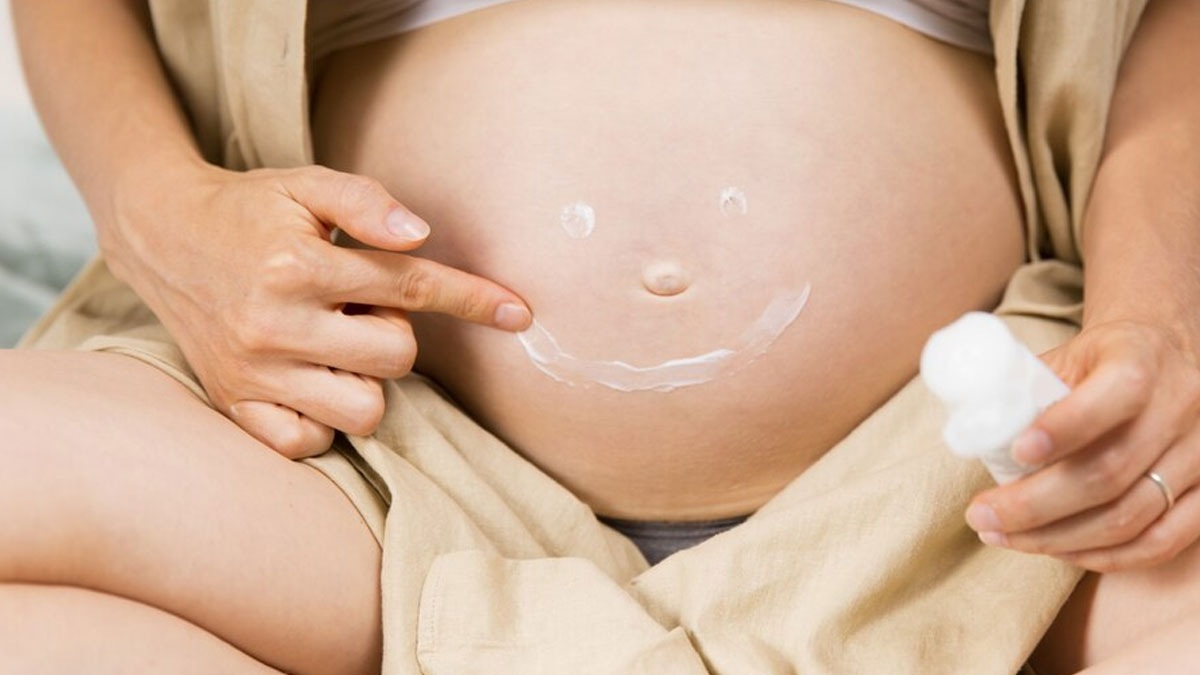
Throughout different stages of life, our skin undergoes various transformations, both positive and negative. Pregnancy, in particular, is a crucial milestone in women's lives, where the body experiences many changes, especially hormonal shifts, that can dramatically affect the skin.
Table of Content:-
In an interaction with the OnlyMyHealth team, Dr Rashmi Sriram, Consultant Dermatologist, Fortis Hospital, Rajaji Nagar, says hormonal fluctuations, increased blood volume, and water retention during pregnancy can cause various skin changes, including stretch marks, melasma, acne, and hyperpigmentation.
She explains that the skin's natural barrier function is disrupted, leading to dryness, itchiness, and sensitivity. Additionally, pregnancy-related weight gain and fluid retention can cause skin to lose elasticity and firmness. While understanding the nature of the skin changes is important, it is equally crucial to enhance skin-care awareness. In this article, we will help you do exactly that.
Also Read: Can Pregnancy Be Confirmed By Checking Pulse? Doctor Answers And Shares Reliable Ways
Most Common Skin Changes During Pregnancy![]()
According to a study published in the Journal of Clinical and Aesthetic Dermatology, skin changes are common during pregnancy, affecting up to 90% of women.
These changes can include hyperpigmentation (darkening of the skin), melasma (a type of facial hyperpigmentation), and stretch marks, researchers noted, adding that hormonal fluctuations, increased blood flow, and other physiological changes contribute to these skin alterations.
"Common postpartum skin changes include stretch marks, melasma, acne, hyperpigmentation, and skin laxity. Other issues are dryness, itchiness, and sensitivity. The abdominal skin is most affected due to stretching and weight gain. Facial skin may experience increased pigmentation, dark circles, and fine lines," says Dr Sriram.
She adds that hair changes, such as postpartum alopecia, are also common.
These postpartum skin changes can typically last 6-12 months, while some persist longer, notes Dr Sriram, adding that treatments vary depending on the issue, including:
- Postpartum hair loss, known as Telogen Effluvium, can be managed with gentle scalp massage and biotin supplements for mild cases.
- Sore nipples can be alleviated with topical creams like lanolin, proper breastfeeding technique and latching, and the use of nipple shields or breast shields.
- Stretch marks: topical creams (e.g., retinol, cyclopentaxisolone), micro-needling, and laser therapy
- Melasma: sunscreen, topical creams (e.g., hydroquinone), chemical peels, and laser therapy
- Acne: topical treatments (e.g., benzoyl peroxide), oral antibiotics, and blue light therapy
- Skin laxity: exercise, massage, and non-invasive skin tightening treatments (e.g., radiofrequency)
- Hyperpigmentation: topical creams (e.g., vitamin C), chemical peels, and laser therapy.
Also Read: Ectopic Pregnancy: Expert Shares Causes, Symptoms, And Treatment
Skincare Measures Women Should Take During Pregnancy![]()
If you are someone who is expecting and wants to manage skin changes associated with pregnancy-related issues, here are some effective tips:
- Moisturise regularly to maintain skin hydration and elasticity.
- Wear supportive clothing to reduce stretch marks.
- Use sunscreen (SPF 30+) and protective clothing to prevent melasma.
- Maintain a healthy weight gain.
- Stay hydrated (8-10 glasses/day).
- Eat antioxidant-rich foods (e.g., berries, leafy greens).
- Avoid excessive sugar and processed foods.
- Exercise regularly (e.g., prenatal yoga).

Additionally, you can invest in certain skincare products with some key ingredients, such as:
- Hyaluronic acid
- Glycerin
- Ceramides
- Niacinamide
- Vitamin C
Ensure that you consult a dermatologist before making any changes to your skincare routine, especially when pregnant. Also, look for products labelled "postpartum-friendly" or "breastfeeding-safe."
How we keep this article up to date:
We work with experts and keep a close eye on the latest in health and wellness. Whenever there is a new research or helpful information, we update our articles with accurate and useful advice.
Current Version

